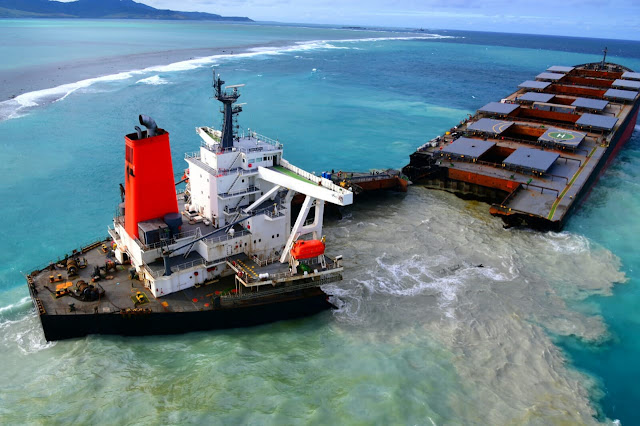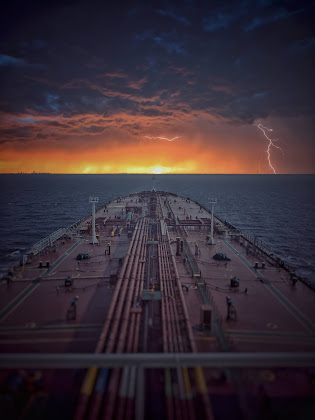Law of Salvage
The law of salvage is a principle of Maritime Law whereby any person who helps recover another person’s ship or cargo in peril at sea is entitled to a reward commensurate with the value of the property salved.
Maritime law is inherently international and although salvage laws vary from one country to another, generally there are established conditions to be met to allow a claim of salvage. The vessel must be in peril, either immediate or forthcoming; the “SALVOR” must be acting voluntarily and under no pre-existing contract and the salvor must be successful in their efforts though payment for partial success may be granted if the environment is protected.
BASIS OF MARINE SALVAGE LAW
With its origins in antiquity, the basis of salvage is that a person helping another at sea is putting himself and his vessel at risk and should be appropriately rewarded. A related consideration was to prevent piracy, since any vessel in peril might well be abandoned to pirates if the owner did not reward an honest salvor, Salvage law has been recognised for centuries in such documents as the Edicts of Rhodes and the Women Digest of Justinian.
It is still a nearly universally recognised right, though conditions for awards of salvage vary from country to country.
The right to rewarded for salvage at sea is based both on Principles of Fairness and Public Policy.
The law seeks to be fair both to the property owners and to the salvors. The legal entitlement to a salvage reward arises when a person acting as a volunteer ( that is, without any pre-existing contractual or other legal duty so to act ) preserves or contributes so to preserving at sea any vessel, cargo, frieght or other recognised subject of salvage from danger.
A salvage situation arise when a shipowner accepts an offer of help from a salvor. To that extent, the arrangement is contractual, but it is not a contract for services with a pre-arranged fee. Instead, the law provides that after the service is done a court or arbitrator will make an award taking into account :-
- The degree of success of the salvage venture.
- The degree of danger of the salvage venture.
- The value of the property salved.
- Whether a reasonable attempt to protect the coastal environment was made.
- The provision of Articles 13 & 14 of the Salvage Convention 1989.
A formal contract is not strictly necessary provided there is evidence that the owner has acquiesced in the salvor’s intervention. The assumption here is that when faced with the loss of his vessel and cargo, a reasonable prudent owner would have accepted salvage terms offered, even if time did not permit such negotiations. Even so, the shipowner is entitled to reject any offer of help and would do so if the shipping line had already made arrangements with a professional salvor of their choice.
There is no equivalent to salvage when ashore : a person who assists another on land has no entitlement unless court deems that an implied contract had arisen, whether objectively or subjectively.
Salvage is distinct from Prize law which is the seizing of property from the enemy at at time of war for which a reward is made by the Admiralty Court sitting as a Prize Court.
RECOGNISED SUBJECT MATTER
Traditionally salvage only recognises a ship or craft ( Vessel ) Cargo Onboard, freight payable and bunkers carried on board as the subject of property in danger.
The Scope of Salvage has been expanded by the 1989 Salvage Convention and Protection of the Environment is part of salvage. Oil Pollution can cause damage to the environment. If the Salvor prevents Oil pollution from happening, he indeed performs a valuable service to the community as mentioned by (1997)
1 Llyod’s Rep 323 (HL) pp 326-28. Therefore the salvor will be rewarded with special compensation ie liability salvage instead of property salvage.
The convention does not consider saving lives to be part of salvage but if one vessel saves life and the other saves property , the arbitrator may apportion the salvage reward between them as he thinks fit.
REAL PERIL
Danger needs to be real but not necessarily immediate or absolute. The Subject of Salvage must be in real danger which means the property is exposed to damage or destruction.
The Burden of Proof lies on the Salvor which means the salvor needs to prove real danger existed when the performance of Service commenced. The court or arbitrators must determine whether the property was truly in danger. As every situation differs both subjective and objective tests will be conducted. Common Considerations are :
- Would a reasonable Master of the Vessel in distress have answered Yes or No to the Offer of Assistance ?
- Was there a real apprehension of danger even though that danger may not have been absolute or immediate ?
- Was the danger fanciful or so remote as only to be distant possibility ?
It is incumbent upon the court to assess the existence and level of danger both present and future.
The Case of the Troilus ( 1951 1 Lloyd’s Rep 467 HL ) illustrated the concept of future danger that the court must take into account when determining the existence of danger.
SALVAGE VS TOWAGE
In this particular case, the Cargo Owners contended that the ship was in perfect safety when she reached Aden and therefore it constituted Ocean Towage but not Salvage when towing from Aden to UK.
The Court held that even though the ship and cargo was in physical safety the services rendered still amounted to salvage service on the grounds that the Master of a damaged Ship must do his best to preserve the Ship and Cargo and bring them to their destination as Cheaply and efficiently as possible. The Salvage award was reasonable as long as the Master Acts Reasonable for combined benefit of Ship and Cargo.
In the modern world, the dispute normally Is not about whether there is just existence of danger but also the degree of danger as it determines the extent of the award.







Comments
Post a Comment